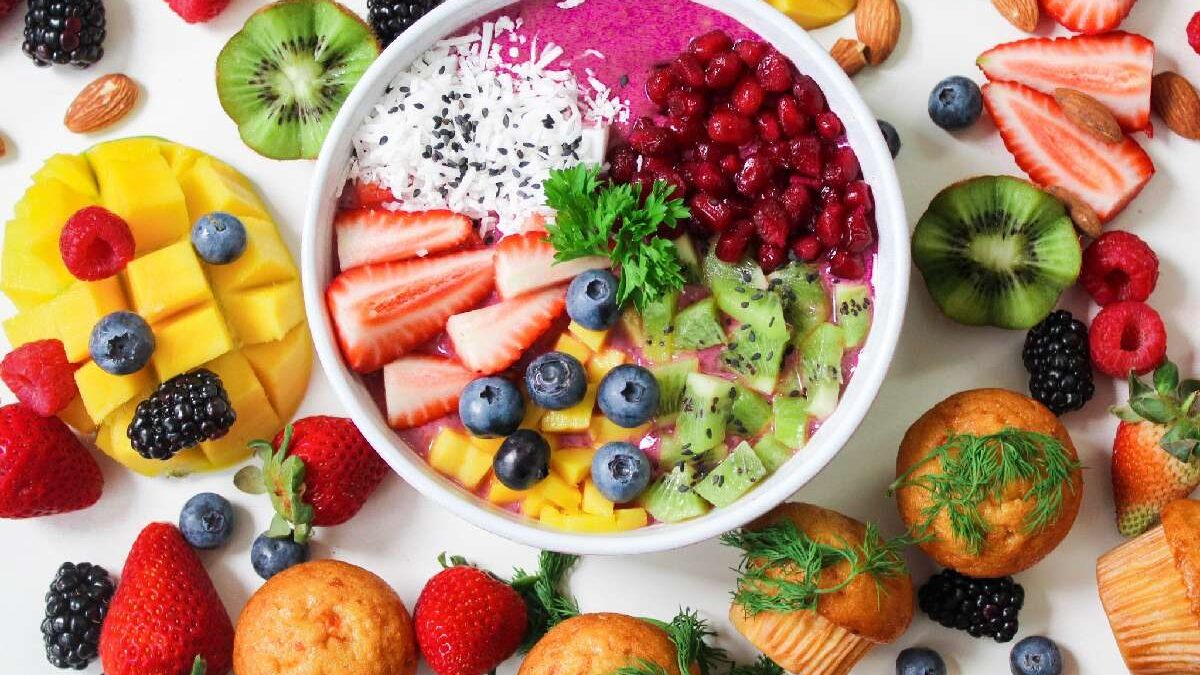Superfoods have rapidly grown in popularity over the years and for a good reason. These nutrient-packed powerhouses offer a variety of benefits for our health and well-being. In this guide, we will take a closer look at the world of superfoods and explore some creative ways to incorporate them into your daily diet.
Table of Contents
What Are Superfoods?
Superfoods are nutrient-dense foods that come with unique health benefits, ranging from improving your immune system to protecting against chronic diseases. They are often rich in antioxidants, fiber, vitamins, and minerals, which are essential for maintaining optimal health. While there is no scientific definition of a superfood, these foods typically provide a meaningful impact on your overall well-being when consumed regularly.
Many superfoods are not only beneficial to our health but are also sustainable for the planet. By supporting sustainable agriculture practices and choosing to consume these environmentally friendly food options, you can reduce your carbon footprint and make a positive impact on the environment. For example, quinoa and chia seeds require less water and resources to grow compared to other crops, making them a more sustainable choice.
Superfoods and Mental Health
Superfoods can also contribute positively to your mental health, with many of them providing essential nutrients for proper brain function. Foods rich in omega-3 fatty acids, like salmon and chia seeds, are known to improve cognitive function and prevent mood disorders. The antioxidants found in berries, such as blueberries, have been linked to increased cognitive function, memory improvement, and reduced risk of neurodegenerative diseases. Ensuring you include superfoods in your diet can lead to both physical and mental health benefits.
Another notable superfood that can have positive effects on mental health is cordyceps. These medicinal mushrooms are known for their potential to boost energy, increase oxygen uptake, and enhance overall cognitive performance. By incorporating cordyceps into your diet, you can further support your mental well-being and focus.
Cultural Diversity
Superfoods can be found all around the globe, representing the diverse culinary cultures they come from. Exploring and incorporating these global superfoods into your diet not only provides health benefits but also enriches your culinary experiences. For instance, turmeric, a powerful anti-inflammatory and antioxidant spice from India, can be used in various dishes like curries and golden milk. Moringa, a nutrient-dense leaf from Africa and South Asia, is packed with vitamins and minerals and can be added to smoothies, salads, and soups. Embracing different superfoods from around the world will help you diversify your palate while improving your well-being.
7 Superfoods You Need to Know
- Blueberries: Packed with antioxidants, fiber, and Vitamin C, these little berries are known for their anti-aging, brain-protecting, and cancer-fighting properties.
- Almonds: These nuts are an excellent source of heart-healthy monounsaturated fats, magnesium, and Vitamin E. Almonds help lower cholesterol levels and reduce the risk of heart disease.
- Salmon: This fatty fish is rich in omega-3 fatty acids, which are crucial for brain function and heart health. Salmon also contains essential vitamins and minerals like Vitamin D and selenium.
- Quinoa: This gluten-free seed boasts complete protein and high fiber levels, making it an excellent option for vegetarians and vegans. Quinoa is also packed with minerals like magnesium, zinc, and iron.
- Kale: This leafy green is an excellent source of Vitamins A, C, and K and provides calcium, iron, and potassium. Kale’s antioxidants and anti-inflammatory properties can help protect against chronic diseases.
- Sweet Potatoes: These vibrant veggies contain high amounts of fiber, Vitamin A, and potassium, supporting good digestive health and healthy vision.
- Chia Seeds: These tiny seeds are loaded with fiber, omega-3 fatty acids, and antioxidants, promoting a healthy heart and reducing inflammation.
Recipes and Storage
The following recipes are versatile and easy to incorporate into any meal. They also pack a powerful punch of both taste and nutrition. For breakfast, try mixing chia seeds into your morning oatmeal or yogurt to create a delicious and healthy chia pudding. Top a kale and quinoa salad with roasted sweet potatoes, blueberries, almonds, and a citrusy vinaigrette for a nutrient-packed lunch. At dinnertime, bake your favorite salmon with lemon, garlic, and herbs and serve it over a bed of roasted vegetables. Toast almond slices and toss them with a bit of sea salt for a healthy and satisfying snack, or create a berry sorbet by blending frozen blueberries with a touch of honey; serve topped with a sprinkle of your favorite superfood seeds.
Choose fresh, organic, and responsibly sourced superfoods whenever possible to ensure maximum nutrition and taste. Store them properly to maintain their nutrient content and prevent spoilage. For example, keep nuts and seeds in a cool, dark place, store leafy greens in a breathable bag, and refrigerate berries to prolong freshness.
Debunking Myths
While superfoods might seem miraculous, it’s essential to remember that no single food is a cure-all for any illness. They should be incorporated into a balanced and varied diet for optimal health benefits. Furthermore, superfoods’ impact on one’s health may vary due to individual differences and genetic factors. So, it’s vital to consult a nutritionist or healthcare professional for personalized advice.
Unlocking the secrets of superfoods can enhance your overall health and well-being when integrated into a varied diet. While they are not magic bullets for perfect health, they can serve as powerful allies in maintaining a healthier lifestyle. Experiment with creative recipes to enjoy the taste and health benefits they have to offer, and watch your body thank you in return.

